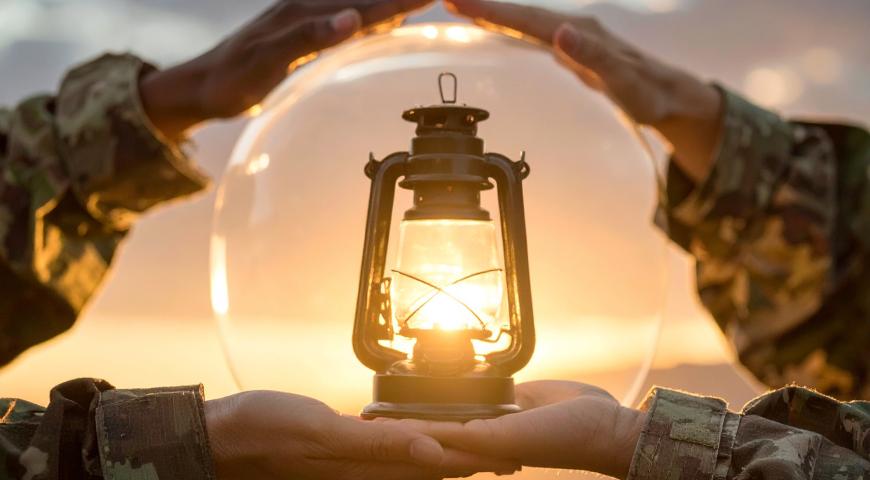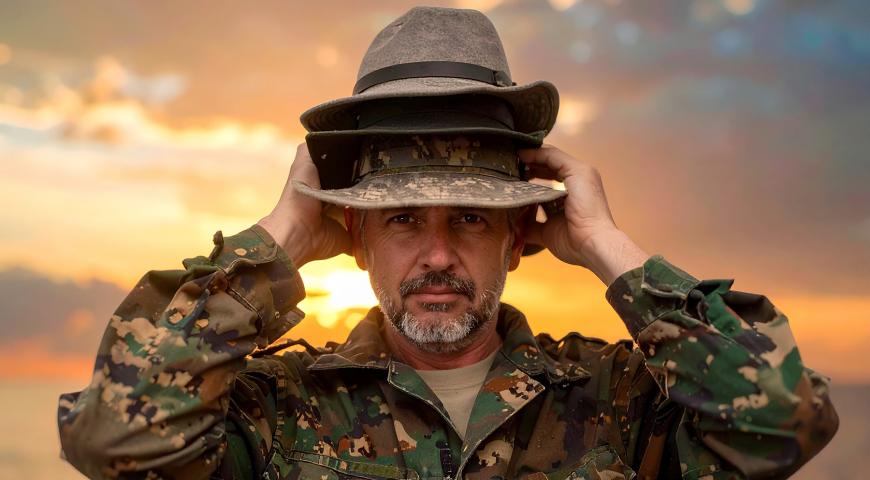Writing and Fighting: The Intellectual Edge
Christopher Johnson
Nobody knows what the next war will look like. Maybe we’re already in it. Perhaps the side with the best technology will have an edge. Perhaps mass will make a comeback to rule supreme once again over manoeuvre. Perhaps battles will be fought in space—or cyberspace—and infantry soldiers will miss out on the action altogether. But one thing is certain; the side who best understands, harnesses, and influences the character of the war will have a good chance of winning it. Gaining and maintaining an intellectual edge may very well be the difference between victory and defeat.
So how best can we understand, harness, and influence the character of the next war better than our adversary; to ensure we play to our strengths and protect our weaknesses? We know how to physically prepare for war—through tough and realistic training. Likewise, we do an exceptional job of teaching tactics to our junior officers and NCOs. Recently, Australia’s Joint Professional Military Education (JPME) has achieved unprecedented levels of popularity and success, but JPME alone is not enough. Are we really preparing ourselves intellectually for war?
Extending our individual knowledge beyond the prescriptive bounds of formal education is what will give us the edge. This means reading and writing about the profession of arms at every opportunity. And the best way to do this is through the lens of history. Professor Sir Michael Howard put it best when he said, “the true use of history, whether civil or military, is not to make man clever for the next time, it is to make him wise forever”. Lieutenant General Paul van Riper tells us that “history offers no ‘lessons’ for military officers. It does though provide a rich context for understanding the terrible phenomenon that was, is, and will remain war”. Military professionals must take responsibility to prepare themselves physically and intellectually. Once we move beyond prescribed study and start to self-educate, we can collectively gain the intellectual edge over our adversaries. Reading and writing about our profession is not just a past-time, it is a duty.
I spent my formative years reading extensively about the profession of arms. I never considered myself a historian or an academic, but I enjoyed reading about the experiences of others to broaden my perspectives across a number of topics. I formed my own views and opinions but only ever shared them in personal conversations with colleagues and friends. I didn’t think my opinions mattered enough to put pen to paper and let other people read about them. Instead I considered writing to be an academic endeavour that was best left to the experts. But soon I realised that there were no experts, only people with different experiences, and different levels of education, each expressing their opinions and testing their ideas in the public domain.
More recently, I have sought to understand and contribute to Australia’s military and national security strategy. Strategists strive to understand the bigger picture; to consider the endless possibilities and the inter-related, compounding, and inadvertent effects caused by strategic decisions. The consequences of these decisions can have profound impacts for our nation and require deep consideration and careful planning. We must accept that there is no way to predict the future. Indeed, the practice of preparing for one eventuality may very well lead to the realisation of another. My contribution to Australia’s strategy, like many others, has been a small one, but I have learned a great deal from it. I intend to keep learning through reading, writing, and experiencing well into the future.
I established ‘Chesterfield Strategy’ so military professionals from all backgrounds can contribute to the conversation and share their ideas about strategy, history, and war. I like the idea of having a casual conversation in the mess (on a Chesterfield of course) where contributors don’t feel like they have to provide an expert opinion. I almost always start my articles with a very short synopsis or case study. I point out some interesting things and lead the reader to a place where they might want to go and find out some more for themselves. Then, I try to link the historical example to a theme or central idea to raise some questions. For example, an article might talk about the Russian advance into Germany during Operation Bagration in the Second World War. How did the Russians use mass to their advantage, and how might we consider countering mass in the contemporary strategic context? Doing it is probably hard. But writing about it isn’t.
Chesterfield Strategy, as the name suggests, tends to focus on strategic level issues. I am now more convinced than ever that nobody really understands what ‘strategy’ is, let alone knows how to do it properly. Notwithstanding, I am careful to stay away from commentary or criticism of current policy issues. Too often junior practitioners concern themselves with current affairs; commenting on how they think the ADF or the government ought to be doing business. Should the government invest in new submarines? I don’t know—go ask the submariners… or Hugh White. Issues like these are complex and are best left for discussion at the appropriate classified level. Sticking to history keeps us away from the perilous world of current affairs and policy. History allows us to view events in their entirety from a variety of perspectives. It allows us to use hindsight, to pull apart decisions, and to see their outcomes with clarity. Unless we can get the next generation of military professionals genuinely interested in history, then history may as well have not been written.
I was asked to provide some advice to young military professionals who are just starting out, so here goes:
First—you don’t need to be right to write. Not everyone can write like Sir Michael Howard, and not everyone has a history degree. The most important thing is to float an idea and contribute to the conversation. Ideas cost nothing, but they are perhaps the most valuable thing we can ever hope to produce. An idea can, and should, spark debate. Ideas should be tested, criticised, and rigorously thrown around the room. Challenging someone’s idea, however, is too often considered to be challenging the person—nothing could be further from the truth. Having your ideas criticised should be considered as a compliment. It means people are reading your work. Academics and senior officers don’t have a monopoly on good ideas. They can come from anywhere.
Second—don’t listen to the haters. Anti-intellectualism remains rampant across the military profession. Some people come from a time before social media and the Internet were fully established and are reluctant to embrace change. Others like to sit back and criticise ideas from the safety of the sidelines without actually contributing meaningfully to the conversation. Others still are nothing more than school-yard bullies. My advice is to ignore them and press on through their white-noise. Those who are passionate about our profession will want to help you, they will support you, and they will genuinely want you to succeed. Your success is our success when it comes to generating the collective intellectual edge for the future.
Third—reading is just as important as writing. Reading takes time, but ultimately, it’s time well spent. For every word you write, you should be reading hundreds. Read in depth, breadth, and context and don’t constrain yourself to one particular genre. Find something that genuinely interests you and read about it. Getting bored? Stop and go read something else. If you’re researching about one particular topic, consider as many different points of view as possible, then form your own opinion and write about it. Finally, there’s nothing wrong with agreeing with an author’s opinion, but try to avoid being caught up on popular bandwagons. Actively seek out counter-points and alternate arguments before arriving at your own conclusion.
Lastly—have fun. The CDF says it all the time. You should genuinely enjoy what you do. People in our profession make a habit of taking themselves far too seriously sometimes. But there’s nothing wrong with having fun and being professional (just make sure the former doesn’t take precedence over the latter). If reading and writing isn’t your thing, that’s ok. Go find another way to gain an intellectual edge. Listen to podcasts, go visit some battlefields, or talk about the profession with your colleagues and mentors. Learning from each other and having fun is what it’s all about; just ask @ArmchairMajor.
The future is uncertain, but if we can better understand, harness, and influence the character of the next war, we will give ourselves the best chance of success. We read, we write, we listen, and we discuss the profession of arms to gain the intellectual edge. I encourage you to contribute to the conversation. I and many others are standing by to support you.
Major Chris Johnson Australian infantry officer. He has served in numerous command and staff positions across the Australian Defence Force and with coalition partners. He is the founder of Chesterfield Strategy, an Australian-based blog on the profession of arms. Follow him on Twitter @ArmchairMajor.
Technical Mastery
Social Mastery
Please let us know if you have discovered an issue with the content on this page.
Comments
Start the conversation by sharing your thoughts! Please login to comment. If you don't yet have an account registration is quick and easy.




